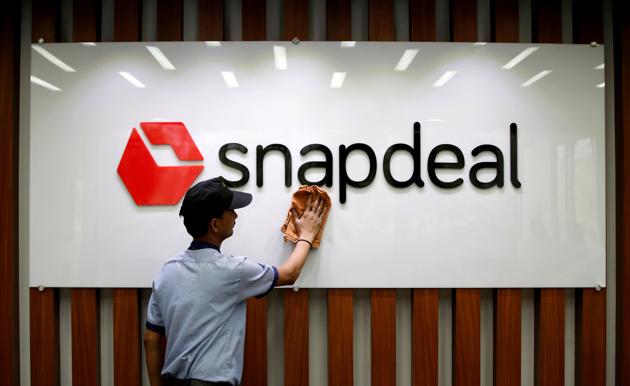Can SoftBank make space for Alibaba in Snapdeal merger?
Alibaba can become the biggest beneficiary of Snapdeal’s troubles. Snapdeal’s largest investor is in talks with Flipkart and Paytm for a possible merger with either of them, but there are problems.
No decision on Snapdeal’s merger with Flipkart or Paytm was taken at the company’s board meeting on Tuesday evening. According to sources, the board members, which include Snapdeal co-founders Kunal Bahl and Rohit Bansal, discussed of various possibilities of the merger, but no consensus was arrived at, according to sources.

Snapdeal, which has become a distant third in India’s e-commerce race is facing tough times. Its single largest investor SoftBank, which invested $627 million in 2014, the largest round of funding the company got.
Next year, in 2015, Alibaba invested into Snapdeal along with other existing investors, in a $500 million round.
Those two investments will shape up Snapdeal’s future. Two things are happening -- SoftBank wants to exit Snapdeal, and Alibaba wants a firm foot in Indian e-commerce.
At the board meeting, sources said, that SoftBank pushed for the merger, and wants it to happen as soon as possible.
People familiar with the discussions said that SoftBank is “pushing hard”, while existing partners Kalaari Capital and Nexus Venture Partners -- two of the early investors -- are expecting to get $100 million, each.
Cut to Alibaba. It is China’s largest e-commerce company, and has placed it bet on Vijay Shekhar Sharma-founded Paytm. While there are talks of Snapdeal and Paytm getting merged, the deal looks unlikely. Sharma and Bahl don’t like each other much, and would not want either of them to have an upper hand in the merger.
Things are better with Flipkart. Sachin and Binny Bansal (both are not related) have a better equation with Bahl and Snapdeal’s Bansal (again not related to Flipkart’s Bansal).
Meanwhile, Sharma has hived off Paytm Mall as a separate entity, which will be most likely run by Alibaba as its Indian e-commerce market place subsidiary. Alibaba might invest up to Rs 1,700 crore in the business. While SoftBank is in talks with Flipkart, alongside it is also evaluating Snapdeal’s merger with Paytm Mall, which will eventually be headed by Alibaba.
According to a story in Mint (the business daily owned by Hindustan Times), SoftBank might invest in the buyer of Snapdeal, which might in turn be valued at $1 billion. That’s less than a fifth of its current valuation of $6 billion, after a round of value dilution, and write down by SoftBank.
Bahl and Bansal, sources said, are also looking at another alternate route to make the business sustainable. While the founders know that without funds, it cannot compete with Flipkart and Amazon, there is a niche space it can occupy -- of a much smaller e-commerce company, which is highly profitable.
The third way out is getting listed on the bourses. According to a source, Snapdeal is putting a team together to evaluate that prospect of an initial public offer (IPO), even.
Last year, Snapdeal’s Bahl had said that the company will not run after gross merchandise value (the total value of goods sold without calculating discounts and promotions), as it is a zero-sum game. But, for all these years GMV was the only measurable metric for investors and companies, as sales and customers acquisition was funded by deep discounts, which increased losses.
Eventually, Bahl and Snapdeal fell prey to the GMV metric. Funding became scarce, from a gush to a trickle, and there was little left for deep discounting. Add to that -- Snapdeal went for a rebranding in October, and spent Rs 200 crore. Bahl and Bansal have been looking for funding, but haven’t succeeded.
In February, Snapdeal cut 600 jobs. In a letter to his employees, Bahl said that the company has expanded, too, fast, in multiple areas, without strengthening its core business.
While Bahl and Bansal still run Snapdeal, they hold only 6.5% stake in the company. SoftBank holds 33%, Nexus Venture holds 10% and Kalaari Capital holds around 8%.
With three of the largest stake holders wanting to merge Snapdeal with a larger player, be it Flipkart or Paytm, there is little that Bahl and Bansal might be able to do. But, it is still not known if Alibaba will be the biggest beneficiary in Snapdeal’s fall.
Stay informed on Business News, TCS Q4 Results Live along with Gold Rates Today, India News and other related updates on Hindustan Times Website and APPs




